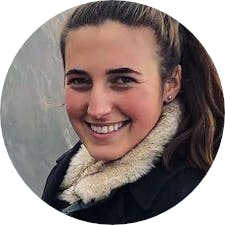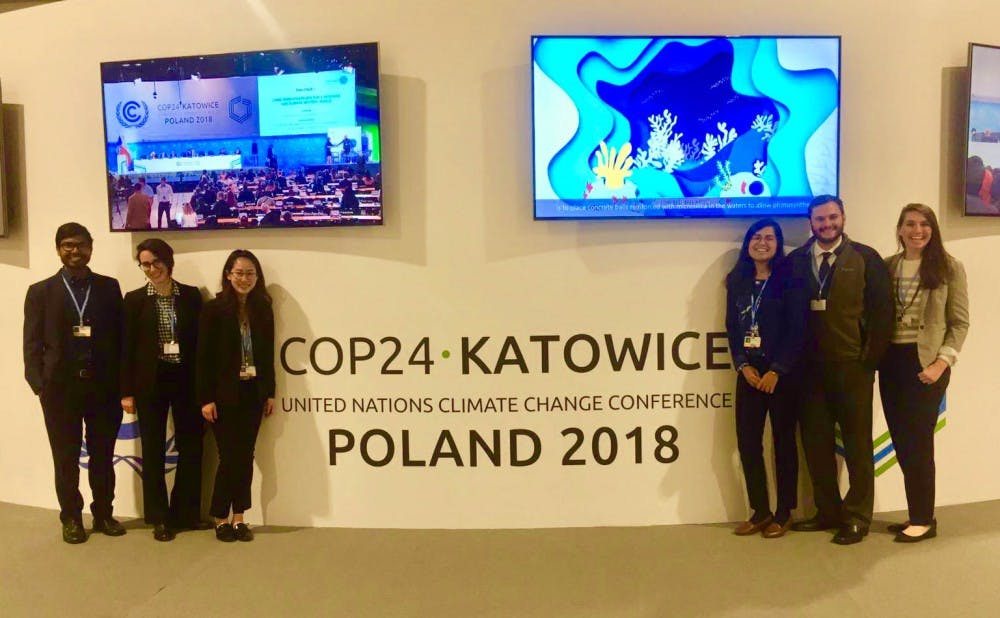For most students, finals week is spent cramming in the library. Others are traveling to a United Nations convention.
Ten graduate students and two undergraduates will be at the United Nations Framework Convention on Climate Change in Katowice, Poland as part of the U.N. Climate Change Negotiations Practicum, a Bass Connections-affiliated course. The faculty sponsors are Billy Pizer, professor in the Sanford School of Public Policy, and Jonathan Wiener, William R. and Thomas L. Perkins professor of law and professor of environmental policy and public policy, along with two graduate student instructors.
"They are going to have a lot of basic skills like writing and presenting and quantitative analysis, but they're also going to be able to work in teams, work with people at different levels, experts, laypeople, work under time under deadlines and constraints," Pizer said. "That kind of learning, whether it involves the trip or is done right here in Durham, that's really valuable. This is one incarnation of that kind of learning.”
Students have spent the semester learning about the history of the UNFCCC and of climate change negotiations. Each of them also has been working for clients across the world, most for non-governmental organizations and some for delegations.
In preparation for the class, students wrote a memo for their client regarding a specific issue that will be discussed at the conference. Senior public policy major Jacob Glasser focused on climate finance and the Green Climate Fund, one of the mechanisms of the UNFCC that helps developing countries adapt to climate change.
Glasser said that he and his classmates will be acting as extensions of their client’s team. Glasser will be working with the National Resources Defense Council.
“We will be acting as eyes and ears on the ground, taking notes at meetings and tracking issues of interest,” Glasser said.
Glasser said there were many events happening at once and the students will be spreading out to assist their clients. This process helps the students to participate more than they could if they were simply observing.
“The main goal of COP24 is to operationalize the Paris Agreement,” Glasser said.
After the Paris Accords were written in December 2015, which Glasser described as the “biggest agreement in climate change we’ve ever had,” there were large frameworks set for climate change control moving forward, but limited technical details.
At COP24, the negotiators will set up a “rulebook” for the “details of how to make the Paris Agreement work,” Glasser said. This includes “climate finance, adaptation, and mitigation,” as well as conversations about loss and damages, gender, and the transition to a more sustainable future.
Pizer, who says he acts as a faculty advisor of sorts for the mainly student-driven class, has been involved in climate negotiations long before coming to Duke to teach.
“The negotiations have been going on since 1992 so I think that having some understanding of the history of the negotiations and how they work is important," Pizer said. "Otherwise you go there and you expect certain things when the reality is that a lot happens behind closed doors in bilateral negotiations.”
The course gives students experience working in a team and following a complicated set of issues, giving them practical experience that is very different from a classroom, Pizer said.
"Experiencing is different from reading or hearing about [the conference]," Pizer said. "You’re living it 15 hours a day. The last few days are all-nighters filled with people waiting to see how different issues get resolved.”
Get The Chronicle straight to your inbox
Signup for our weekly newsletter. Cancel at any time.

Maria Morrison is a Trinity senior and a digital strategy director for The Chronicle's 117th volume. She was previously managing editor for Volume 116.

